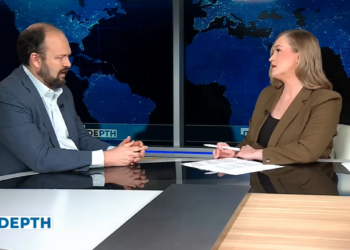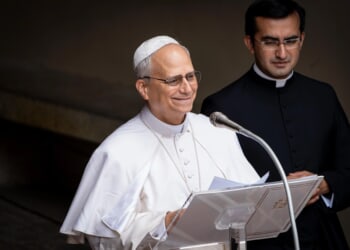Andrew Cuomo’s political comeback is officially dead. The former New York governor conceded Tuesday’s Democratic primary for New York City mayor to Zohran Mamdani, a self-described democratic socialist who rose a wave of far-left energy to victory. The message from Democrat voters was loud and clear: the old guard is no longer welcome.
Cuomo’s loss isn’t just about one race in one city; it is a warning sign for Democrats nationwide. It proves the deep rift within the party has only widened since their disastrous 2024 presidential bid, when party leaders pushed Joe Biden out of the race and hastily elevated Kamala Harris as their replacement candidate. That chaos left behind a party fractured between two very different visions for the future, and Mamdani’s win is just the latest skirmish in an ongoing civil war.
On one side is the activist Left, which is young, aggressive, and unapologetically ideological. These are the voters and organizers who idolize Rep. Alexandria Ocasio-Cortez, chant for climate revolution, and see American capitalism itself as the enemy. They want change, not compromise. Zohran Mamdani, backed by a slate of progressive celebrities and campaigners, is one of their rising stars. He comes across to his constituents as a true believer.
On the other side is the Democrat establishment — people like Cuomo, Harris, and Nancy Pelosi — who still think political power comes from working deals in backrooms and courting donors at cocktail parties. They’re increasingly out of step with their party’s base, and Cuomo’s defeat reaffirmed that. He didn’t just suffer a surprising loss; he got trampled by a woke movement that sees him as a symbol of everything wrong with politics: ambition without belief and power without principle.
Cuomo thought he could stage a comeback by mimicking Donald Trump — portraying himself as a victim of political witch hunt, wronged by the media and betrayed by his own party. But unlike Trump, Cuomo doesn’t have a loyal base. Trump’s return worked because he never stopped speaking for ordinary Americans. Cuomo, by contrast, speaks only for himself. New Yorkers saw through it. His campaign for mayor was a transparent play for national relevance, a stepping stone for some future presidential run. He wasn’t running to fix New York City — he was running to bolster his resume.
Even his brother, former CNN host Chris Cuomo, couldn’t save him. After being booted from the network for advising Andrew behind the scenes, chameleon Chris tried to reinvent himself as an independent media figure on NewsNation. The supposedly fair and balanced “Fredo” fell flat too. The Cuomo brand is tainted, and both brothers seem unwilling to admit that the public — and their party — has moved on.
The larger story here, though, isn’t just Cuomo’s failure. It’s what Mamdani’s victory reveals about the Democratic Party’s growing gap. This isn’t just about New York City — it’s about the future of their party nationwide. Mamdani’s wing of the party doesn’t just want to push a few policies leftward. They see people like Joe Biden, Kamala Harris, Nancy Pelosi, and yes, Andrew Cuomo, as obstacles — relics of a Democratic Party built on compromise, corporate donors, and incremental change.
Take what happened to David Hogg earlier this year. The anti-gun activist and Parkland survivor was abruptly removed from a leadership role as the DNC’s vice chairman. Why? Because Hogg had the nerve to question the party’s strategy and speak out against internal dysfunction. In today’s Democratic Party, there’s no room for independence or challenging geriatric authorities. Step out of line, and you’re gone.
They don’t want debate. They just want control. Democrats demand to control their candidates with puppet strings — they don’t like competing ideas and interests.
Compare that with the GOP. Yes, Republicans have their own divide between the Bush-era establishment and the populist MAGA movement. But at least there’s energy and clarity on one side — and room for discussion. The America First movement has tapped into something real: working-class frustration, a sense of cultural displacement, and a desire for a government that serves its citizens — not elite institutions.
Perhaps progressive Democrats are taking a page from Trump’s populist playbook to overthrow their own side’s establishment elites. But there’s a crucial difference.
While the MAGA movement emerged from the grassroots — built by voters disillusioned with both parties and led by someone who tapped directly into their frustrations — the progressive movement inside the Democratic Party is fueled by elite academic theories, dark money, and cultural power centers like Hollywood. It isn’t speaking to the working class so much as reshaping the party into a vehicle for ideological crusades. Mamdani and his allies may call their campaign people-powered, but it often looks more like a close-knit revolution than a coalition that can win broad-based national elections.
Cuomo’s defeat is just the latest casualty in a party that doesn’t know who it is anymore. And the Democrats should be worried — not just because they lost another relic of their past, but because they’re letting a radical new faction steer the ship without a map. The GOP may be forced to find its footing after Trump’s second term, but at least they have direction. The Democrats, as of now, are busy eating their own — and pretending it’s progress.
Julianna Frieman is a writer based in North Carolina. She received her bachelor’s degree in political science from the University of North Carolina at Charlotte. She is pursuing her master’s degree in Communications (Digital Strategy) at the University of Florida. Her work has been published by the Daily Caller, The American Spectator, and The Federalist. Follow her on X at @juliannafrieman.
READ MORE:
Trump Administration Defunds Radical LGBTQ Hotline Connecting Children to Gender Activists



![Man Arrested After Screaming at Senators During Big Beautiful Bill Debate [WATCH]](https://www.right2024.com/wp-content/uploads/2025/06/Man-Arrested-After-Screaming-at-Senators-During-Big-Beautiful-Bill-350x250.jpg)












